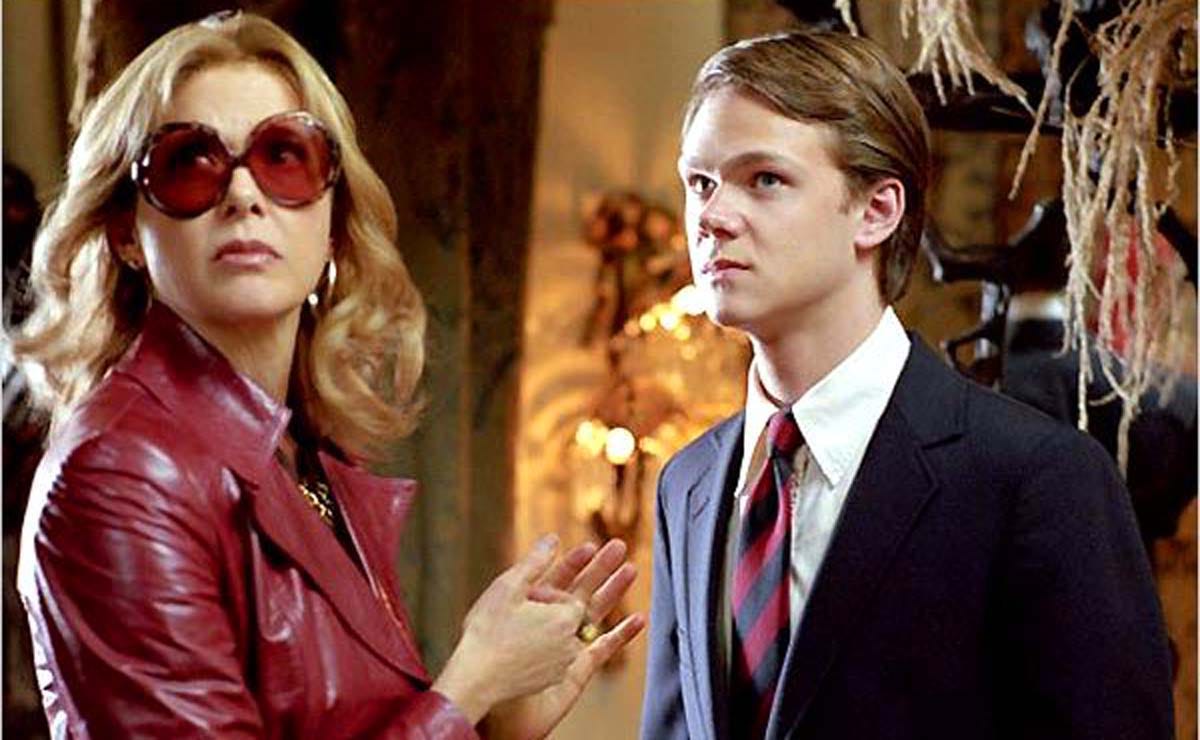running with scissors
Film, 2006, 2.5 stars
Written and Directed: Ryan Murphy
Ryan Murphy may have gone on to amazing things, but Running with Scissors is a very odd movie. I was reminded a little of films like The Royal Tennenbaums or Igby Goes Down, since the film is all at once an exploration of a tragically twisted family, a coming of age bildungsroman, and the story of how mental disease can destroy lives if dealt with unmercifully. Perhaps I loved the book this film was taken from so much that I just wanted desperately for this film to be as good as its source and its influences. It was not, not even close.
Augusten Burroughs is not a victim. He moves though his childhood amongst the insane and the uncaring with one burning desire: the desire for the normalcy and boundaries that any child has a right to expect. His plight is both deeply tragic and utterly hysterical. In both the book and the film, we are able to see the absurd and the humorous in his situation, as well as appreciate that he was barely able to escape from his wretched childhood with his life and sanity intact.
The abstract nature of the film, which feels like nothing more than a mosaic of incidents thrown together, attempts valiantly to convey the mood and soul of what his past must have been like. After all, Burroughs can never really tell us truthfully what happened to him—all he can do is try to get across is how it made him feel.
The film is about how Burroughs witnesses the violent breakdown of his parents' marriage and goes to live with his mother's terrible psychiatrist, Dr Finch. In an attempt to find herself, Augusten's mother Deidre (Annette Bening) has affairs with several women, who Augusten disapproves of more as a matter of taste than sexual preference. He too is gay and quickly finds himself in a relationship with Dr Finch's 35-year-old, schizophrenic son, Neil (played by an almost unrecognisable Joseph Fiennes).
Dr Finch's two daughters, Hope and Natalie (Gwyneth Paltrow and the always wonderful Evan Rachel Wood) also live with them, along with Dr Finch's wife Agnes. All three women have profound, yet vastly different, effects on Augusten's life. The performances of these three actresses are nothing short of spectacular, but they are undermined time and time again by the director's choices as he goes for quick, shock humour over any kind of deep, rich analysis.. The mosaic that begins as interesting and quirky cracks quickly and sinks towards the conclusion into retro, pastiche hell.
I found myself laughing at the characters when I should have been crying for them. This tale should be precautionary, an epic warning against chronic, categorical child abuse. I didn't feel that. What I felt was disjointed, somewhere between pity and detachment. I think I expected something more meaningful. I still find it difficult to reconcile all these fabulous performances with a film that just doesn't work.
Perhaps it is in the direction, perhaps in the editing, the pacing of the film. The first twenty minutes seemed so promising, then it dissolved into unstructured hysteria. I can't pinpoint exactly where it goes wrong. Sure, it was fascinating at times, but it was too self-indulgent to be powerful.
The black comedy Murphy was going for feels less like a finely-honed scissor cut and more like being hit over the head with a blunt instrument repeatedly for two hours. But it wasn't all bad. Moments of true potential shone through amongst the madness.
Perhaps my favourite scene in the film is the one in which Augusten and Natalie decide that the ceiling in the kitchen is too low, and that they must, in order to breathe and let out their anger, punch a hole through the ceiling. They sit at the kitchen table afterwards, covered in plaster, looking more free than they have for the entire film. When Dr Finch walks in and surveys the damage he oddly, and quite rightly, decides that the new hole gives the kitchen a sense of humour.



